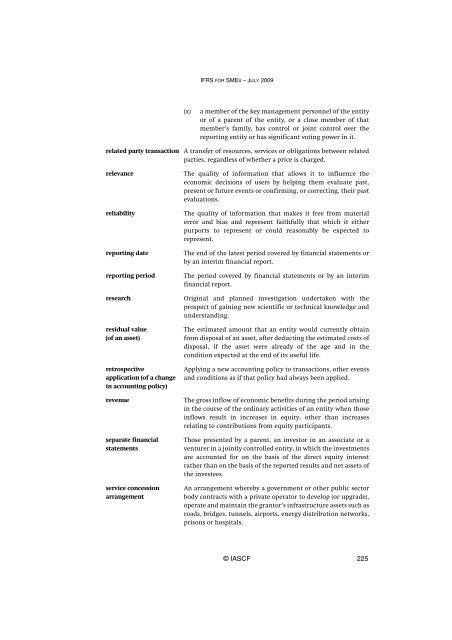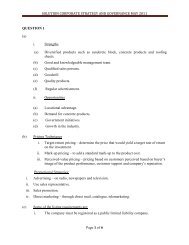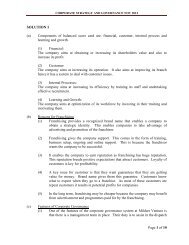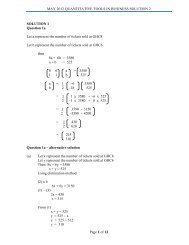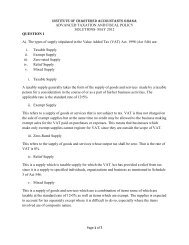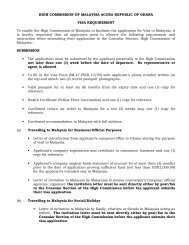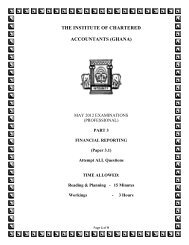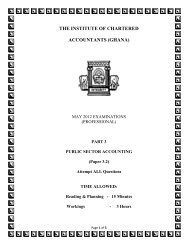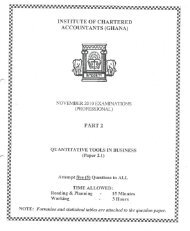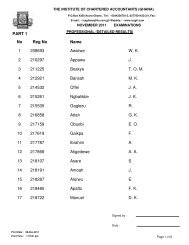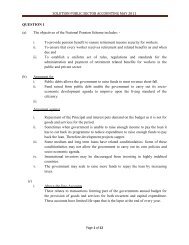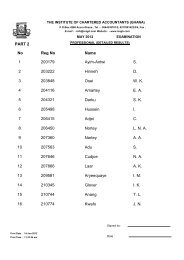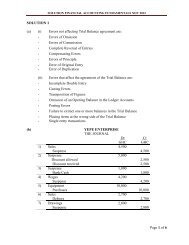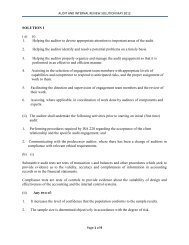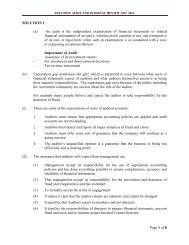- Page 1 and 2:
2009International Accounting Standa
- Page 3 and 4:
The International Financial Reporti
- Page 5 and 6:
IFRS FOR SMES - JULY 200928 EMPLOYE
- Page 7 and 8:
IFRS FOR SMES - JULY 2009Preface to
- Page 9 and 10:
IFRS FOR SMES - JULY 2009P12Tax law
- Page 11 and 12:
IFRS FOR SMES - JULY 2009Internatio
- Page 13 and 14:
IFRS FOR SMES - JULY 2009Section 2C
- Page 15 and 16:
IFRS FOR SMES - JULY 2009conditions
- Page 17 and 18:
IFRS FOR SMES - JULY 2009Performanc
- Page 19 and 20:
IFRS FOR SMES - JULY 20092.34 Two c
- Page 21 and 22:
IFRS FOR SMES - JULY 2009Measuremen
- Page 23 and 24:
IFRS FOR SMES - JULY 2009Section 3F
- Page 25 and 26:
IFRS FOR SMES - JULY 2009(b)(c)the
- Page 27 and 28:
IFRS FOR SMES - JULY 2009Identifica
- Page 29 and 30:
IFRS FOR SMES - JULY 2009Current/no
- Page 31 and 32:
IFRS FOR SMES - JULY 2009(iii)(iv)(
- Page 33 and 34:
IFRS FOR SMES - JULY 20095.5 As a m
- Page 35 and 36:
IFRS FOR SMES - JULY 2009Section 6S
- Page 37 and 38:
IFRS FOR SMES - JULY 2009Section 7S
- Page 39 and 40:
IFRS FOR SMES - JULY 2009(e)cash pa
- Page 41 and 42:
IFRS FOR SMES - JULY 2009Income tax
- Page 43 and 44:
IFRS FOR SMES - JULY 2009(b)the oth
- Page 45 and 46:
IFRS FOR SMES - JULY 2009(c)(d)powe
- Page 47 and 48:
IFRS FOR SMES - JULY 2009Uniform ac
- Page 49 and 50:
IFRS FOR SMES - JULY 2009Disclosure
- Page 51 and 52:
IFRS FOR SMES - JULY 2009Consistenc
- Page 53 and 54:
IFRS FOR SMES - JULY 2009Changes in
- Page 55 and 56:
IFRS FOR SMES - JULY 2009Section 11
- Page 57 and 58:
IFRS FOR SMES - JULY 2009(b)(c)a de
- Page 59 and 60:
IFRS FOR SMES - JULY 2009business t
- Page 61 and 62:
IFRS FOR SMES - JULY 2009(b)the int
- Page 63 and 64:
IFRS FOR SMES - JULY 2009national o
- Page 65 and 66:
IFRS FOR SMES - JULY 2009(b)the pro
- Page 67 and 68:
IFRS FOR SMES - JULY 2009Derecognit
- Page 69 and 70:
IFRS FOR SMES - JULY 2009(c)whether
- Page 71 and 72:
IFRS FOR SMES - JULY 2009(e)(f)fina
- Page 73 and 74:
IFRS FOR SMES - JULY 2009(b) the he
- Page 75 and 76:
IFRS FOR SMES - JULY 2009the entity
- Page 77 and 78:
IFRS FOR SMES - JULY 2009Section 13
- Page 79 and 80:
IFRS FOR SMES - JULY 2009Joint prod
- Page 81 and 82:
IFRS FOR SMES - JULY 2009Recognitio
- Page 83 and 84:
IFRS FOR SMES - JULY 200914.6 The i
- Page 85 and 86:
IFRS FOR SMES - JULY 2009Financial
- Page 87 and 88:
IFRS FOR SMES - JULY 200915.7 In re
- Page 89 and 90:
IFRS FOR SMES - JULY 2009(b)(c)(d)t
- Page 91 and 92:
IFRS FOR SMES - JULY 200916.6 The i
- Page 93 and 94:
IFRS FOR SMES - JULY 2009Section 17
- Page 95 and 96:
IFRS FOR SMES - JULY 2009(c)(d)(e)c
- Page 97 and 98:
IFRS FOR SMES - JULY 2009Impairment
- Page 99 and 100:
IFRS FOR SMES - JULY 2009Section 18
- Page 101 and 102:
IFRS FOR SMES - JULY 2009Internally
- Page 103 and 104:
IFRS FOR SMES - JULY 2009Recoverabi
- Page 105 and 106:
IFRS FOR SMES - JULY 2009Section 19
- Page 107 and 108:
IFRS FOR SMES - JULY 2009Allocating
- Page 109 and 110:
IFRS FOR SMES - JULY 2009(b)An enti
- Page 111 and 112:
IFRS FOR SMES - JULY 2009Section 20
- Page 113 and 114:
IFRS FOR SMES - JULY 200920.10 The
- Page 115 and 116:
IFRS FOR SMES - JULY 2009Financial
- Page 117 and 118:
IFRS FOR SMES - JULY 2009lessor var
- Page 119 and 120:
IFRS FOR SMES - JULY 2009Section 21
- Page 121 and 122:
IFRS FOR SMES - JULY 2009Subsequent
- Page 123 and 124:
IFRS FOR SMES - JULY 2009Appendix t
- Page 125 and 126:
IFRS FOR SMES - JULY 2009bonds with
- Page 127 and 128:
IFRS FOR SMES - JULY 2009(b)At 31 D
- Page 129 and 130:
IFRS FOR SMES - JULY 2009occurrence
- Page 131 and 132:
IFRS FOR SMES - JULY 2009Capitalisa
- Page 133 and 134:
IFRS FOR SMES - JULY 2009Appendix t
- Page 135 and 136:
IFRS FOR SMES - JULY 2009This is eq
- Page 137 and 138:
IFRS FOR SMES - JULY 2009Deferred p
- Page 139 and 140:
IFRS FOR SMES - JULY 2009(c)(d)when
- Page 141 and 142:
IFRS FOR SMES - JULY 2009(b)(c)surv
- Page 143 and 144:
IFRS FOR SMES - JULY 2009Appendix t
- Page 145 and 146:
IFRS FOR SMES - JULY 2009Example 9
- Page 147 and 148:
IFRS FOR SMES - JULY 2009Example 18
- Page 149 and 150:
IFRS FOR SMES - JULY 2009no obligat
- Page 151 and 152:
IFRS FOR SMES - JULY 200924.7 For t
- Page 153 and 154:
IFRS FOR SMES - JULY 2009Section 26
- Page 155 and 156:
IFRS FOR SMES - JULY 2009estimate t
- Page 157 and 158:
IFRS FOR SMES - JULY 2009Share-base
- Page 159 and 160:
IFRS FOR SMES - JULY 2009Section 27
- Page 161 and 162:
IFRS FOR SMES - JULY 2009Internal s
- Page 163 and 164:
IFRS FOR SMES - JULY 200927.19 Futu
- Page 165 and 166:
IFRS FOR SMES - JULY 2009Reversal w
- Page 167 and 168:
IFRS FOR SMES - JULY 2009Section 28
- Page 169 and 170:
IFRS FOR SMES - JULY 2009Recognitio
- Page 171 and 172:
IFRS FOR SMES - JULY 2009Measuremen
- Page 173 and 174:
IFRS FOR SMES - JULY 2009Cost of a
- Page 175 and 176: IFRS FOR SMES - JULY 2009Terminatio
- Page 177 and 178: IFRS FOR SMES - JULY 2009(i)(ii)rec
- Page 179 and 180: IFRS FOR SMES - JULY 2009end of the
- Page 181 and 182: IFRS FOR SMES - JULY 2009(b)(c)when
- Page 183 and 184: IFRS FOR SMES - JULY 2009Presentati
- Page 185 and 186: IFRS FOR SMES - JULY 2009Section 30
- Page 187 and 188: IFRS FOR SMES - JULY 2009(b)(c)tran
- Page 189 and 190: IFRS FOR SMES - JULY 2009When the e
- Page 191 and 192: IFRS FOR SMES - JULY 2009Section 31
- Page 193 and 194: IFRS FOR SMES - JULY 2009Statement
- Page 195 and 196: IFRS FOR SMES - JULY 2009amount of
- Page 197 and 198: IFRS FOR SMES - JULY 2009Section 33
- Page 199 and 200: IFRS FOR SMES - JULY 2009payable or
- Page 201 and 202: IFRS FOR SMES - JULY 2009Section 34
- Page 203 and 204: IFRS FOR SMES - JULY 2009Measuremen
- Page 205 and 206: IFRS FOR SMES - JULY 2009Section 35
- Page 207 and 208: IFRS FOR SMES - JULY 2009non-contro
- Page 209 and 210: IFRS FOR SMES - JULY 2009Disclosure
- Page 211 and 212: IFRS FOR SMES - JULY 2009businessAn
- Page 213 and 214: IFRS FOR SMES - JULY 2009date of tr
- Page 215 and 216: IFRS FOR SMES - JULY 2009fair prese
- Page 217 and 218: IFRS FOR SMES - JULY 2009gainsgener
- Page 219 and 220: IFRS FOR SMES - JULY 2009impairment
- Page 221 and 222: IFRS FOR SMES - JULY 2009joint vent
- Page 223 and 224: IFRS FOR SMES - JULY 2009operating
- Page 225: IFRS FOR SMES - JULY 2009related pa
- Page 229 and 230: IFRS FOR SMES - JULY 2009timing dif
- Page 231 and 232: IFRS FOR SMES - JULY 200921 Provisi


